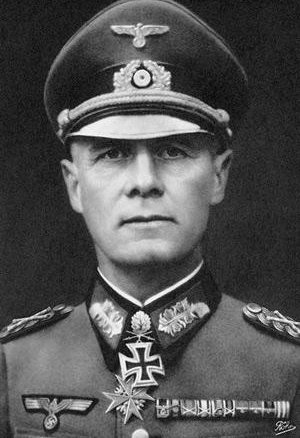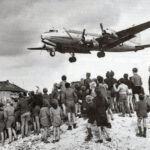What was the opinion of German soldiers towards Field Marshal Erwin Rommel during World War II?
What was the opinion of German soldiers towards Field Marshal Erwin Rommel during World War II? Erwin Rommel, known as the “Desert Fox,” was highly regarded by many German soldiers during World War II, particularly those who served under him. Rommel’s reputation as a brilliant and daring tactician, especially during his leadership of the Afrika Korps in North Africa, earned him widespread admiration within the Wehrmacht. Here are some key points that shaped the soldiers’ views of him:
Leadership Style:
Rommel was known for his hands-on leadership, often being close to the front lines. He showed a willingness to share the hardships of his men, which endeared him to the troops. Soldiers appreciated his courage and the fact that he wasn’t afraid to take risks, which gave them confidence in his command.
Tactical Brilliance:
Rommel’s successes in North Africa, including his bold maneuvers and use of mobile warfare, made him a hero among many German soldiers. His ability to outmaneuver and defeat larger Allied forces in early campaigns cemented his reputation as a military genius, and soldiers took pride in being part of his forces.
Fairness and Integrity:
Rommel was also admired for his fairness and humane treatment of prisoners of war, which contrasted with the harshness of other Nazi commanders. His more “honorable” conduct during the war elevated his standing, both among his men and even in the eyes of some of the Allies.
Distance from the Nazi Party:
Unlike some other high-ranking German officers, Rommel was not closely associated with the Nazi Party, and many of his soldiers saw him as a professional soldier rather than a political figure. This made him more popular with soldiers who were not ideologically committed to the regime. However, this also contributed to his downfall later in the war.
Later Disillusionment:
Toward the end of the war, especially after his involvement in discussions with resistance figures plotting against Hitler, Rommel’s image was complicated. While some soldiers may have been unaware of his opposition to Hitler, others who learned of his disillusionment with the Führer saw him as a man of principle.
In general, Rommel’s combination of battlefield success, leadership qualities, and relative distance from Nazi ideology earned him the respect and admiration of many German soldiers. Even after his forced suicide in 1944, Rommel’s legacy remained strong within the ranks of the Wehrmacht.


